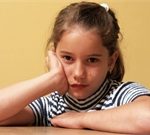The isolation of the coronavirus pandemic might be stunting the social growth of young children, experts say.
Since schools closed across the United States this past spring to stem the spread of COVID-19, kids have been deprived of experiences that are essential to their emotional development — playing at recess, sharing lunch with classmates and learning together in the classroom.
In a recent HealthDay Live! interview,
Dr. Dimitri Christakis, director of the Center for Child Health, Behavior and Development at Seattle Children’s Research Institute, and Dan Domenech, executive director of The School Superintendents Association, discussed how children might be impacted by the closure of their schools and the disruption of time spent with their peers.
Humans are “social animals,” and the limitations placed on social interactions during the pandemic may harm mental health, particularly among children, they said.
“We didn’t evolve for this kind of interaction with each other,” Christakis explained. “You can see it in young children. An infant as young as 6 months will attend to another infant. They want to engage with them socially. So, withholding all of that from children is making them pay a price, at least in the short term.”
When schools open up, Christakis and Domenech said teachers and administrators should be prepared for a surge of mental health concerns among their students.
“We’re working for our teachers to be instructed and trained to, if not physically embrace students, emotionally embrace students and let them talk about their experiences,” Domenech said.
Still, it’s hard to say exactly what the long-term effects of this period of isolation will have on children, since the circumstances are unprecedented, Christakis added.
Children who experience loneliness and isolation might be more likely to develop depression and other mental health problems, according to one review of 63 studies and more than 51,000 participants, published recently in the Journal of the American Academy of Child & Adolescent Psychiatry.
The review’s British researchers, led by Maria Elizabeth Loades from the University of Bath, found that loneliness was associated with mental health problems up to nine years later, and longer periods of loneliness were more reliable indicators of future mental health issues.
To combat current and future distress, Christakis and Domenech advised parents and teachers to prioritize children’s emotional needs.
“It’s more important to deal with the emotional needs of the students, and not necessarily their academic loss. The academic loss can be corrected with time, but their emotional learning and the trauma that they have been undergoing, that’s key,” Domenech said.
What can parents who are struggling to support their children during the summer?
Christakis advised parents to take full advantage of every opportunity for their children to engage in person with other kids, while still being mindful of their local public health recommendations. Since different areas of the country are at different stages of the pandemic, some parents might be able to act on this advice more, depending on where they live.
“There’s a social learning deficit that needs to be closed,” Christakis said. “Children are going to need more time outdoors with playmates. If [summer] camps are open where you live and you have the resources, I would try to make that available to your children, and support them through the summer as best you can.”
More information
Visit the U.S. Centers for Disease Control and Prevention for more on COVID-19.
Source: HealthDay
Copyright © 2026 HealthDay. All rights reserved.
















